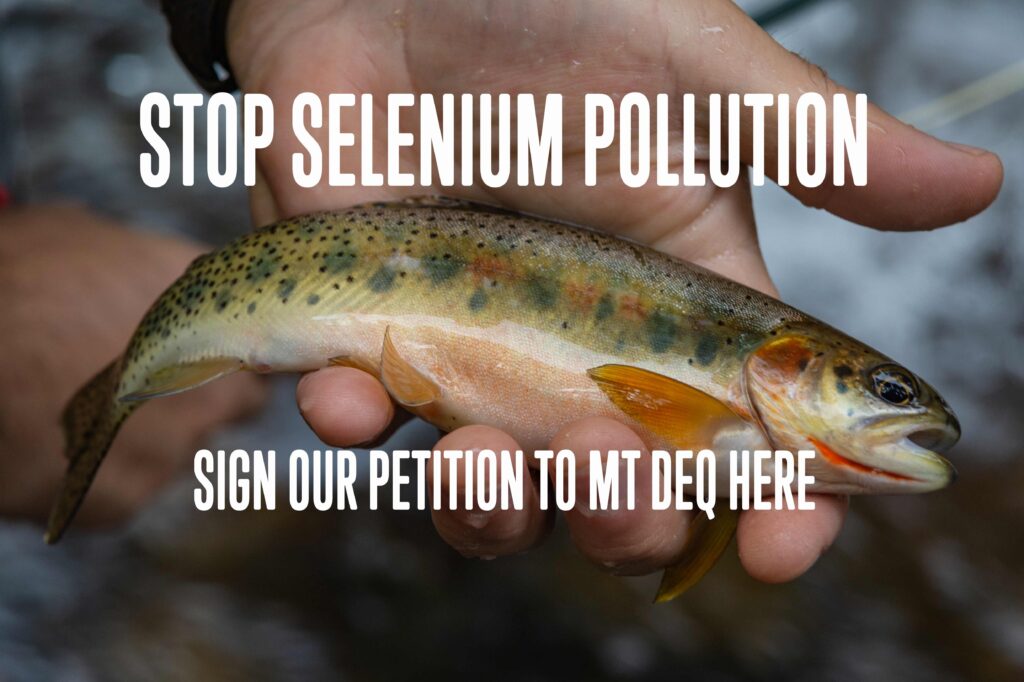I was lucky enough to get the chance to fish the Kootenai River this summer with one of the people that knows the river and its fish better than just about anyone. Between reminders to “set” and “skitch” our dry flies, Tim Linehan shared with us nearly a lifetime of knowledge about a wide range of topics from hatches to patterns, as well as stories about friends and fish. While Tim’s homewaters are wonderfully remote and wild, they also face challenges. So our talk also turned to the very real and persistent threats facing the Kootenai and Lake Koocanusa from foreign mining companies in Canada. Of course, we had a banner fishing day, but it also doubled down my personal commitment to stand up for these coldwater fisheries.
For more than a decade, Montana Department of Environmental Quality (DEQ) has led an effort with partners in government, science, and communities to develop a site-specific standard for selenium pollution that flowing into Koocanusa and the Kootenai from coal mining in British Columbia. At the levels already present in this lake and river system (with more on the way from four new coal mines in the permitting process), selenium poses significant threats to aquatic life as it moves through the food web. As fish tissue concentrations of selenium rise, they can experience liver damage or failure, growth deformities, and stunted growth and fitness. Ultimately, mature female fish with toxic levels of selenium in their system experience drastically reduced production of viable eggs to the point of entire spawning seasons of fish being unsuccessful. As selenium moves through the aquatic and terrestrial food web, many other species are susceptible to a similar fate – population crash.
MTU has reviewed, participated in, and encouraged this process from the beginning with an emphasis on the goal of having DEQ set a site-specific standard for selenium in the lake and river that is based on sound science in the interest of protecting one of northwest Montana’s most valuable and intact wild and native trout fisheries. The current standards being proposed by DEQ do just that. MTU fully supports this proposed rule amendment and the site-specific selenium standard it proposes.
Unfortunately, there are a small group of special interests that are attempting to derail this important rule at the last minute. The DEQ needs to hear from Montana anglers now that our coldwater fisheries should not be the dumping ground of polluted mine waste. Despite what the opponents say, the public process to get here has been fair, open, transparent, and collaborative. This is our chance to stand up for our water and fish – please join me and add your name to our petition by clicking the picture link above.
Clayton Elliott, Conservation Director

